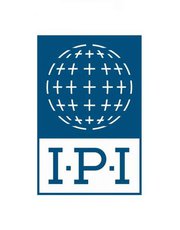It’s not an overstatement to say there is a cottage industry of journalism startups in this country. (If there weren’t, we’d be short a good chunk of coverage here at the Lab.) So when news comes down that Google is partnering with the Knight Foundation to fund innovation in news in the U.S., it’s familiar — we know the landscape and can start preparing for the influx of data viz applications.
 But what about guiding news experiments on a global scale? This one’s not so easy. “In a lot of parts of the world we’re still dealing with traditional media: radio, TV, and the newspaper,” said Alison Bethel McKenzie, director of the International Press Institute.
But what about guiding news experiments on a global scale? This one’s not so easy. “In a lot of parts of the world we’re still dealing with traditional media: radio, TV, and the newspaper,” said Alison Bethel McKenzie, director of the International Press Institute.
To put it politely, we have what could be called first world problems for news innovation.
As part of its broader journalism innovation effort Google is planning to invest in digital news, training, and sustainability planning for organizations in Africa, the Middle East, and parts of Europe. Google is collaborating with the International Press Institute to award the $2.7 million in grants.
But from talking with Bethel McKenzie, it’s clear the new media landscape, at least in the parts of the world this money is directed at, is different from the west. The basic infrastructure of online journalism — a reliable network, regular online access, or basic press freedoms — are nowhere near universal. And when you want to innovate, it can be hard to start off on shaky building blocks.
“When we deal with the west, we know that Europe and the United States have higher readerships of news online,” she said. “It’s not the same in west and east Africa.”
 The three areas IPI is focusing on are news platforms, new media training initiatives, and new business models for news. These categories reflect the universal issues that journalism is facing — but in the case of the IPI News Innovation grants, they’re looking for people with proven track records, not just pitches. Under the new platforms category, they specifically say they’re looking for tested systems. “We want to empower people who are really doing work on the behalf of journalists or for journalists,” she said.
The three areas IPI is focusing on are news platforms, new media training initiatives, and new business models for news. These categories reflect the universal issues that journalism is facing — but in the case of the IPI News Innovation grants, they’re looking for people with proven track records, not just pitches. Under the new platforms category, they specifically say they’re looking for tested systems. “We want to empower people who are really doing work on the behalf of journalists or for journalists,” she said.
In grant making, you always want to put your money where you can get the most value out of it, but in this case the institute clearly wants to make more of an investment than an educated bet. Bethel McKenzie said money could go to help burgeoning online media expand their reporting or help companies that provide services to journalists refine their products. The goal here is for grant winners in these countries to act as the catalyst for more transformation in the news business. “We have to deal in the traditional and have one foot in new technology,” she said.
But this is where IPI plays the part not just of grant facilitator, but also a kind of ambassador for journalism. Knight acts as an effective conduit for news innovation in the U.S. because it has connections reaching from newsrooms to nonprofits and up the pipeline to D.C. The International Press Institute’s portfolio is somewhat similar, except they often have to act as a more vocal advocate for freedom of the press overseas. Their job, as Bethel McKenzie explains it, will be not just to dispense the grants but also try and provide cover for the grantees with governments and other institutions that are wary of new media, if not an open Internet.
Looking at the recent uprisings in places like Egypt, Tunisia, and Libya, among the common factors is government officials attempting to suppress the media as well as the Internet. (We also know thanks to our friends over at the Berkman Center, that Internet censorship is not precluded to countries facing anti-government unrest.) All of which further shows the need for new media organizations to be well equipped to not only face transformations in journalism, but also society.
“What we’re hoping to do is to bring the part of the world that is skeptical about people being able to voice their views and opinions, we want to bring them the idea that all voices should be heard and all voices have something to contribute, whether you believe they’re negative or positive,” Bethel McKenzie said.